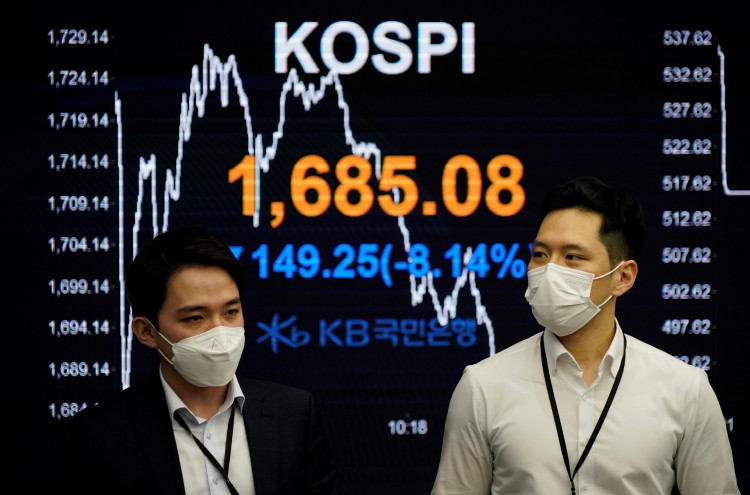South Korean shares dropped to nearly 10-year lows early Friday, causing so-called "circuit breakers" to activate on the primary index for the first time in almost 20 years, as coronavirus hysteria led to a collapse in global bonds.
The South Korean currency fell to a four-year low, while the yield on the benchmark equity rallied. The South Korean Stocks Exchange enabled the circuit breaker to pause activity of the Kospi for around 20 minutes, as the benchmark plunged over 8 percent. The composite fell to 1,685.9 points - plunging 149.40 points, or 8.15 percent from the close at the time.
Following the worst Wall Street activity since 1987, stocks sank in Asia, with shareholders afraid that financial and economic relief measures would not be enough to prevent a potential financial crisis. Government bonds and the US currency went up.
The Bank of Korea disclosed that its seven-member panel debated on Friday whether it should conduct an unprecedented inter-meeting assessment to slash policy interest rates to a new record-low. As of October 2008, the lender has not issued an emergency rate cut.
Foreign exchange regulators in South Korea stated they will move to stop any herd-like conduct on the money market, while numerous brokers told Reuters that agencies were accused of selling US dollars to counter the vulnerability of the SK won.
The KRX also triggered the circuit breaker at about 9:04 a.m. to stop trading on the Kosdaq. The index had fallen to 516. points - slipping 46.9 points at the time from the end of the previous session. The indicator had fallen to 516.7 points - sinking 46. points at the time from the end of the previous session.
It was the first time since February 12, 2016 that the circuit breaker had been triggered for the Kosdaq at a time of intensified North Korea threats and global inflation anxieties.
Owing to the impact from the coronavirus pandemic, global stocks are going into the worst week since 2008 as market prices in a significantly weaker outlook. Futures on the S&P 500 declined over 2 percent on Thursday after the index fell 9.4 percent. Currencies dropped in South Korea and Indonesia while equities weakened in Australia and Japan as investors scrambled for cash.
In China, the Shanghai Composite Index dropped 3.4 percent halfway through the trading day, while the Hang Seng Index in Hong Kong plunged almost 6 percent. Meanwhile, SK won was pegged at 1,224. per USD on the onshore settlement platform, 1.44 percent lower compared to its previous close of 1,205.





